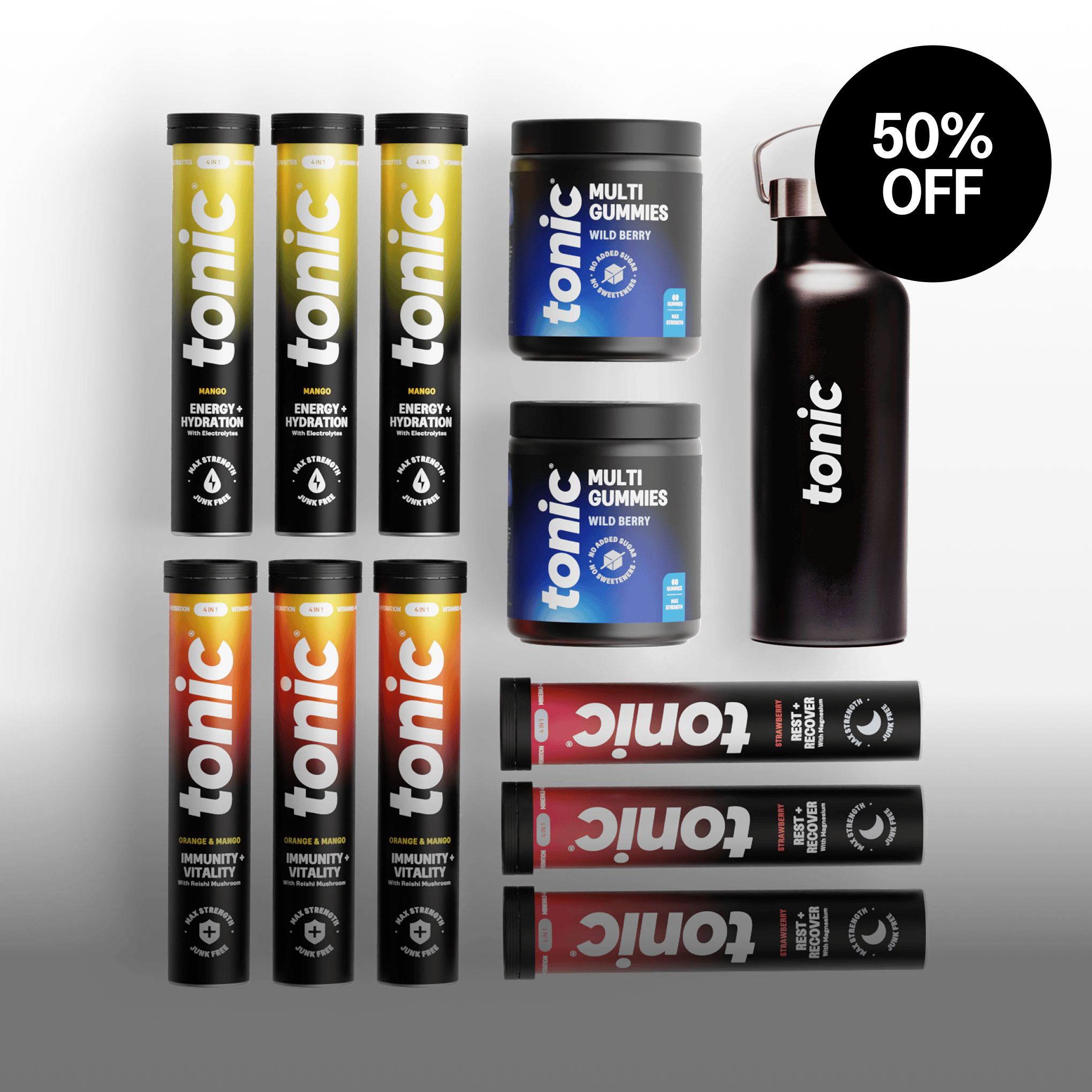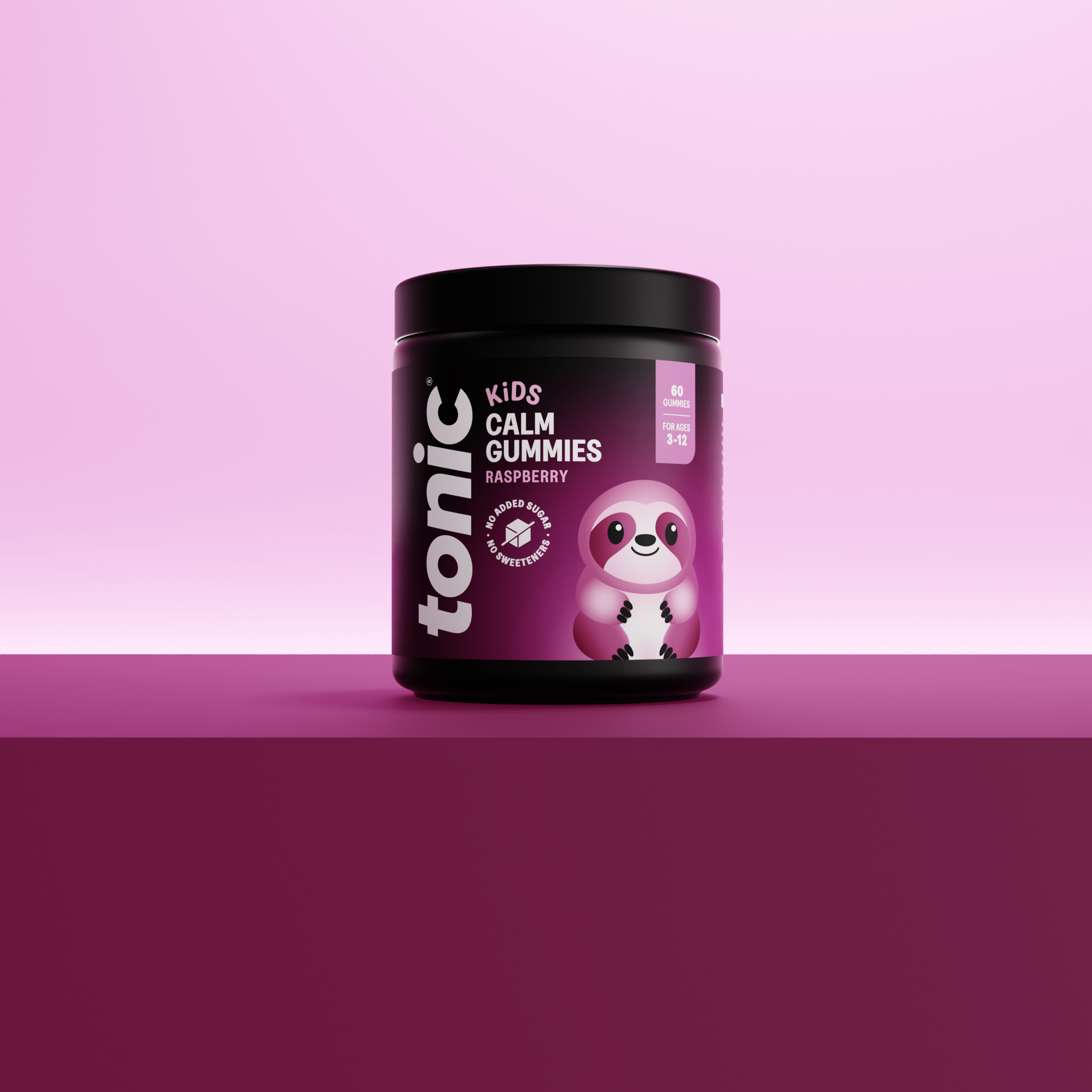By Natalie Louise Burrows, Nutritionist and Clinic Director at Integral Wellness
When the sun’s out and the salads are flowing, it’s easy to feel like we’re doing everything right for our health.
Many people naturally scale back on supplements during summer, assuming they’re just for cold and flu season.
But here's the thing — our bodies don’t stop needing nutrients just because it’s warm outside.
In fact, summer brings a unique set of demands that can shift your nutrient requirements in ways that aren’t always obvious. From vitamin D genetics to changes in physical activity and stress levels, it might be time to reconsider whether shelving the supplements is really serving you — or if you actually need to change what you’re taking instead.
Let’s dig into three reasons why your summer health routine might still benefit from targeted vitamins, and how to tell what your body actually needs.
1. Vitamins Aren’t Just for Cold & Flu Season
Many people associate supplements with immunity — and in winter, that makes sense. But your immune system doesn’t go on holiday in the summer.
In fact, warmer months can bring different stressors:
- More social contact and travel increase your exposure to bacteria and viruses
- Outdoor time raises your skin’s exposure to UV, which can increase oxidative stress
- Seasonal allergies challenge the immune system differently
- Hot weather, late nights, and increased alcohol intake can subtly wear on your internal systems and reserves
-
Additionally, many vitamins and minerals play diverse roles beyond immunity.
B vitamins are essential for energy metabolism, especially if you're more active. Magnesium supports energy production, muscle recovery, and sleep.
Vitamin C helps produce collagen and supports the skin from sun damage.
While you're switching to lighter foods and enjoying longer days, remember that your body is still working hard — and may need a little extra support to keep up.
💡 Support tip: Try a cool glass of Daily Immunity in the morning — packed with high-strength vitamin C, D3, zinc and more.
It’s clean, citrusy, and contains no added sugar — perfect for keeping your system supported all summer long.
2. The Sunshine Vitamin Isn’t Always a Sure Thing
One of the biggest summer myths? That more sun automatically means enough vitamin D.
Yes, sunlight triggers the synthesis of vitamin D in the skin. But it’s not that simple.
Several factors can limit how much you actually produce and absorb:
- Genetics — certain VDR gene variants can reduce conversion efficiency
- Skin tone, sunscreen & indoor time — darker skin requires more sun; SPF blocks UVB
- Geography & timing — even in the UK summer, UVB rays may not always be strong enough
Low vitamin D, even in summer, can affect:
- Mood
- Bone and muscle health
- Hormones
- Metabolic function
- Immunity
If you’ve ever felt unusually tired, low, or “off” during the warmer months, it could be worth testing your levels — or your genetics.
💡 Top up easily: Daily Immunity includes optimal plant-based vitamin D3, so you can support your levels with confidence — whatever the weather.
3. Your Nutrient Needs Don’t Follow the Calendar
The human body is dynamic — and your nutrient needs shift based on what you’re asking it to do.
In summer, your routine might look different:
- More exercise → higher demand for magnesium, B vitamins, antioxidants
- More sweat → more electrolyte loss
- More alcohol → more need for zinc, B1, B2 and detoxification support
- More travel or late nights → more stress = depleted reserves of B6, selenium, magnesium and electrolytes
That’s why supplementing shouldn’t follow a rigid protocol. It should match the season, your body, and your lifestyle.
💡 Recharge tip: Energy & Hydration delivers 1,000mg of salt and key electrolytes + 15 vitamins, minerals and plants — all in a refreshing blood orange flavour.
Perfect in a cold glass of water post-exercise, or during hot, active days when water alone isn’t enough.
What About Sleep?
Hot nights, disrupted schedules, and more socialising can all interfere with your sleep — and that matters.
Sleep is when your body:
- Recovers
- Rebalances hormones
- Regulates immunity
- Repairs tissue
Struggle to wind down or stay asleep in summer? You’re not alone.
💡 Sleep tip: Rest & Recover is a calming, sugar-free night-time blend with magnesium, zinc, electrolytes and plants to help you sleep deeper and recover better.
What Does Your Body Actually Need?
There are two smart ways to personalise your supplement routine — and neither require guesswork.
Option 1: Test It
Blood tests for vitamin D, B12, ferritin and others can help you uncover deficiencies and supplement with purpose.
Option 2: Try Supplement Cycling
Pause a supplement for 1–2 weeks and reintroduce it. Do your energy levels drop? Does sleep change? PMS come back?
It’s a simple, body-led way to track what’s actually working — and avoid unnecessary overload.
So, Do You Still Need Vitamins in Summer?
Short answer: Possibly.
Longer answer: It depends — on your body, your habits, your genetics, and how you’re living this season.
Don’t treat supplements like a winter-only safety net. Think of them as your year-round support — adjusting with your needs as life changes.
Your Summer Supplement Checklist
✔️ Immune support beyond winter
✔️ Vitamin D, C, zinc, magnesium — daily, not just seasonally
✔️ Electrolytes for hydration and energy
✔️ Night-time support for better recovery
☀️ Tonic Favourites for Summer:
- Daily Immunity – Immune, skin and energy support
- Energy & Hydration – Electrolytes + vitamins in blood orange flavour
- Rest & Recover – Sleep and recovery blend with magnesium and zinc
Your health doesn’t take the summer off.
And neither should your support. Listen in, top up, and enjoy the season — without running on empty.
Natalie Louise Burrows is a registered nutritional therapist (BANT, CNHC) and clinic director at Integral Wellness, a nutrition and health clinic specialising in cardio-metabolic health. Along with her clinic team of nutritionists, they help men and women regain their energy, control their cravings and avoid and reverse type 2 diabetes. They also address health conditions such as high blood pressure, high cholesterol, insulin resistance, fatty liver and heart disease, and weight challenges.







Leave a comment
All comments are moderated before being published.
This site is protected by hCaptcha and the hCaptcha Privacy Policy and Terms of Service apply.